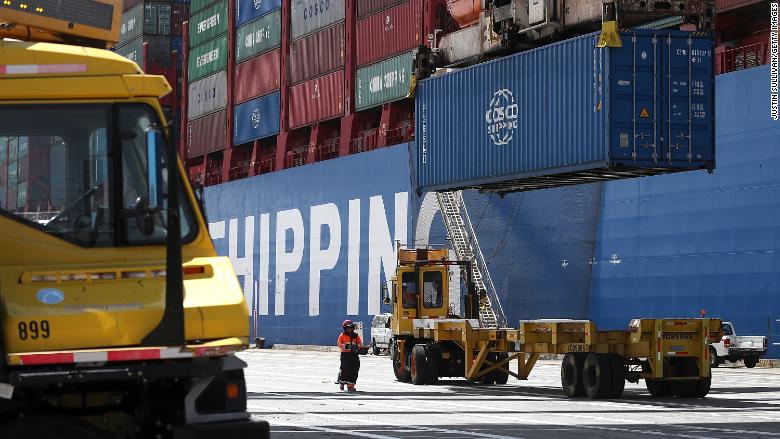
[ad_1]

The massive export engine of the Chinese economy is slowing as the trade war heats up. A new salvo from the United States could push it back.
China's export growth dropped to just under 10 percent in August from over 12 percent in the previous month, according to government data released over the weekend. The performance is significantly below the Chinese average for the year.
The situation is likely to worsen in the coming months as the trade war between China and the United States intensifies. President Donald Trump said on Friday that he was ready to impose a new wave of tariffs on $ 267 billion worth of Chinese products.
In addition to tariffs already in force or in preparation, such a measure would apply new taxes to all of the $ 505 billion worth of goods imported from China by the United States last year.
As a result, Chinese export growth "could fall to a single figure and even in negative territory in the coming months," said analysts at the investment bank Nomura in a research note. This would put more pressure on an economy that is already facing severe headwinds, they said.
The weakness of Chinese trade comes mainly from the slowdown in export growth to major trading partners such as the European Union and Japan.

According to analysts, exports to the United States peaked in August, helped by the fall of the Chinese currency against the US dollar and the surge of companies to ship goods before the next tariff cycle.
China's huge trade surplus with the United States is at the heart of the dispute. Louis Kuijs, director of Asian economics at research firm Oxford Economics, said in a statement Monday that the fact that it continues to grow "may aggravate the situation."
Chinese stocks and fall of the Australian dollar
Concerns about what could happen next were reflected Monday in the declines of Chinese stocks (SHCOMP).
The Australian dollar, considered an indicator of confidence in the Chinese economy because of the huge amount of Australian commodities bought by Chinese companies, has also been under pressure. It was trading near its lowest level against the US dollar since early 2016, when fears of a collapse in Chinese growth rocked the markets.

According to Nomura, the drop in exports could force Beijing to find new ways to stimulate economic growth.
Chinese authorities have already turned to tax cuts, infrastructure spending and more flexible monetary policy to support growth.
The Chinese economy has begun to calm down this year and signs of stress are multiplying. Last week's data showed that Chinese factories were losing export orders and were suffering from weakening growth in infrastructure investment.
"The slowdown in exports indicates that China's growth may take longer," Nomura analysts said.
The Chinese stock market and its currency have been slaughtered in recent months by investors concerned about the health of the country's economy.
But many analysts doubt that the authorities will deliberately devalue the Chinese yuan against the dollar to boost export growth, which could trigger turbulence in the financial markets and pour a flood of money from the country.
CNNMoney (Hong Kong) First published on September 10, 2018: 5:44 AM
Source link